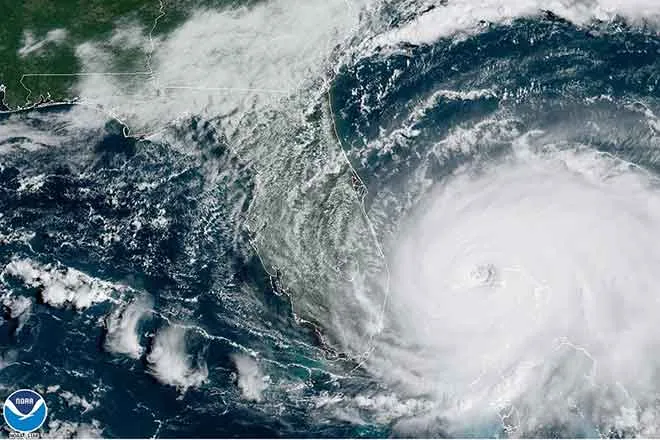
California commission approves contentious desalination plant in Monterey
After an all-day hearing Thursday, the California Coastal Commission approved a permit for a desalination plant in Monterey County despite acknowledging the project poses significant environmental justice concerns and could result in increased costs for residents.
The commission’s 8-2 vote to approve a permit for California-American Water to operate a desalination plant in Monterey Bay came after 13 hours of discussion that spanned late into the night Thursday. Hundreds of residents crowded into the hearing room to offer public comment, which at times, came accompanied by tears.
Residents from Marina, a small city located along the central coast where 11.5 percent of residents live in poverty, turned out in droves to express concern about the project. The hearing was emotional for dozens of city residents, who delivered impassioned speeches urging the commission to vote against the proposed project and criticizing Cal-Am’s outreach efforts.
The discussion forced commissioners to weigh whether it is fair to place another industrial complex in Marina when the community will not benefit from the water. The water, instead, would be distributed in other nearby communities.
“Environmental injustice is happening right here in Marina,” Marina City Councilmember Kathy Biala told commissioners referring to the concern that minority communities bear disproportionate environmental impacts. “Marina is already burdened with a regional landfill, the regional treatment plant, the sewage treatment plant, the last coastal sand mining in the U.S. shores, contaminated former military sites and a 30-acre outdoor composting facility.”
“A decision here today has the power to harm our city for decades,” she later added.
Cal-Am’s project would produce 4.8 million gallons of water per day in the first phase with the option to eventually grow to 6.4 million gallons per day. Coastal Commission staff recommended commissioners approve the project with a long list of special conditions – including several added Thursday night – requiring Cal-Am to obtain additional permits, reduce environmental impacts and address costs to residents.
The commission’s decision ultimately weighed the need for water in the Monterey Peninsula – which has struggled with its water supply for decades – and the impact it will have on environmental areas and the residents of Marina. With California’s climate-change driven drought impacting water supplies, it’s become more urgent to identify reliable water sources.
“The proposal before us today might solve problems for some while creating and perpetuating injustices for others,” Kristina Kunkel, deputy controller of environmental policy with the State Controller’s Office, told commissioners.
The project applicant, Cal-Am began the planning process for the project nearly a decade ago. During Thursday’s hearing, Cal-Am officials said they conducted outreach among Marina residents in recent months and heard concerns about groundwater, environmental impacts and the size of the project, which resulted in the company reducing the project footprint by 25 percent.
Cal-Am argued Thursday that the project is the “only option to meet this region’s water supply needs.” The region relies on local water supplies, including groundwater and the Carmel River. But regulators issued a “cease and desist” letter limiting pumping from the Carmel River after Cal-Am was found to be illegally diverting water.
“This project will finally allow this region to have water security after almost 30 years – that means meeting existing and future demands,” DJ Moore, an attorney for Cal-Am, told commissioners Thursday.
During deliberations, several commissioners raised concern about the cost impact of the project on low-income residents. Cal-Am estimated the project could increase water rates between $47 to $50, placing a burden on low-income ratepayers.
Cal-Am originally agreed to expand its eligibility assistance program and add $500,000 to the United Way Hardship Fund to offset the cost increases. But during deliberations, commissioners added a last minute condition requiring Cal-Am to develop a low-income rate payer relief program with a $10 cap.
Commissioners also added last-minute conditions requiring Cal-Am to pay $3 million to the City of Marina and fund a full-time employee to oversee the project’s public access plan.
In a split vote, commissioners ultimately agreed to approve the project permit with the special conditions.
“Our staff looked at all the data and what they found was it is going to be needed that we plan for and that there be another source of water for this community, for this peninsula,” Commission Chair Donne Brownsey said. “I feel like this is the right place to land because I do believe that there is a shortfall in the water – not now, but in the future.”
Gov. Gavin Newsom issued a statement late Thursday praising the commission’s decision, saying “desalination is an important part of the state’s strategy to address the threats of extreme weather.”
Last month, the Coastal Commission approved a desalination plant in Orange County, which follow the high-profile denial of a large desalination plant in Huntington Beach.














